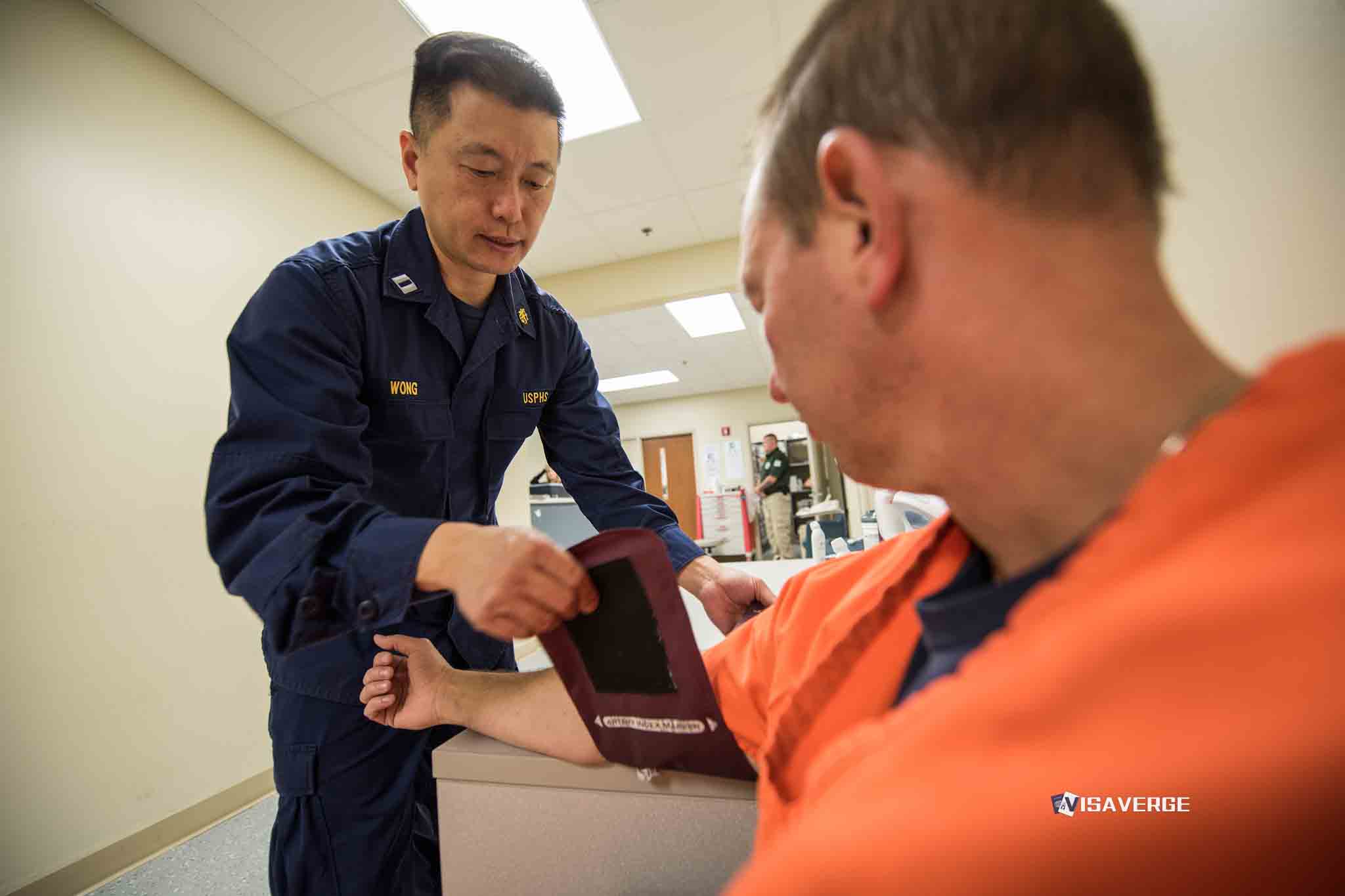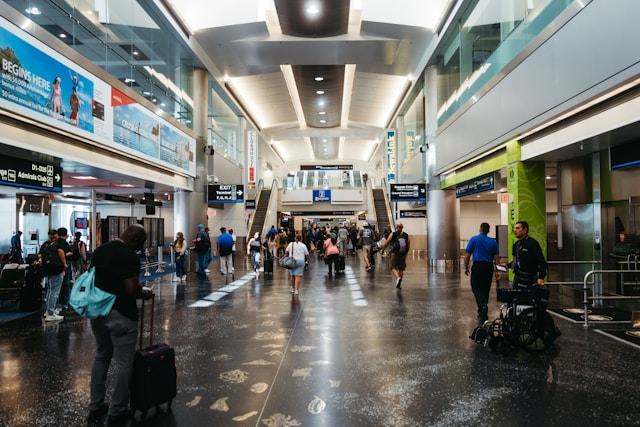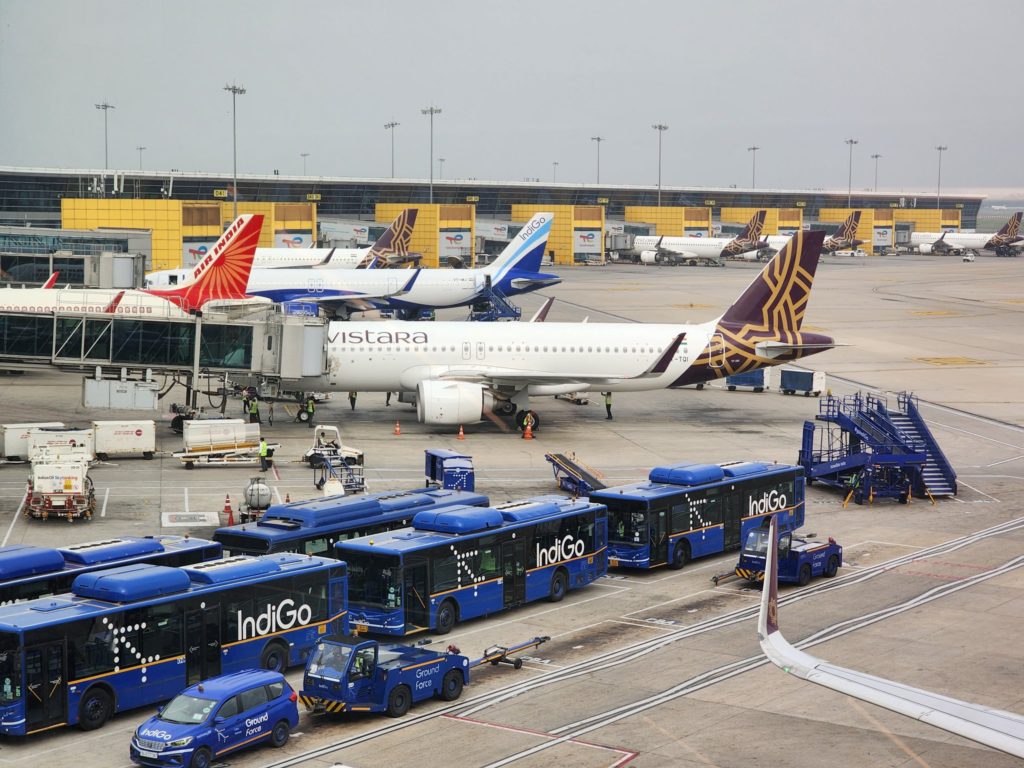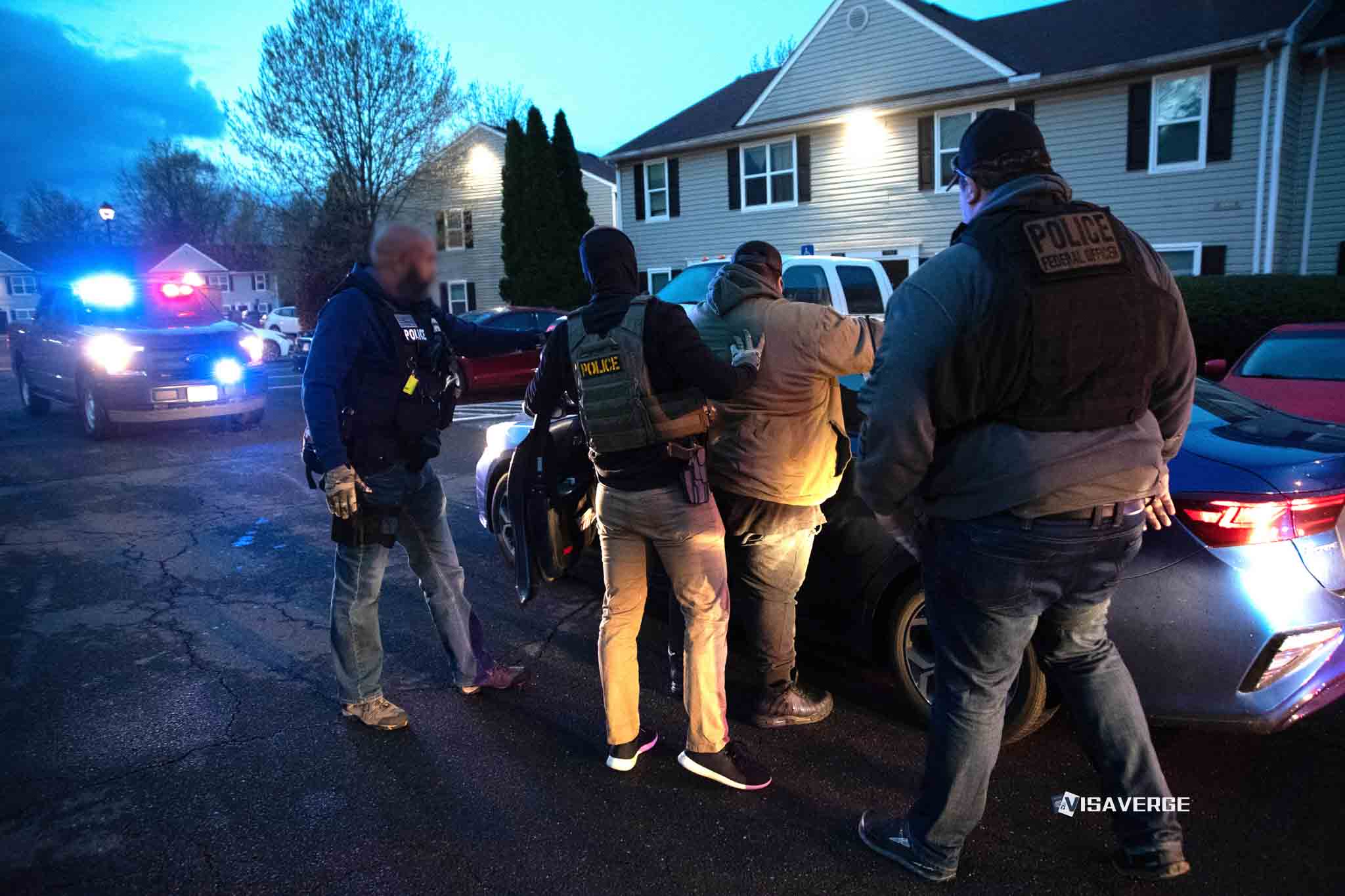(WISCONSIN) Immigration arrests of people with open criminal cases are straining local courts across the state, as ICE detains criminal defendants straight from county jails in Wisconsin and moves them hundreds of miles away before judges can finish their work. Between January and July 2025, federal records show more than 130 arrests at county jails statewide, nearly 40% involving people still waiting for a decision in their first criminal case, according to figures cited in recent court filings. Judges, prosecutors, victims, and families are left with unfinished cases and hard questions about who controls the pace of justice.
How the arrests are happening and immediate effects

The arrests usually happen out of public view, often in the holding areas of county jails in Wisconsin, shortly after a person posts bail or completes a short local sentence. In one widely discussed case, a man from Honduras, identified in records as Miguel, was picked up at the Fond du Lac County Jail and transferred to an immigration facility near Terre Haute, Indiana, before he could return to state court.
Five months later, he was still in federal custody and missed a September court date, prompting a Wisconsin judge to issue a bench warrant for his arrest even though authorities knew he was being held by another arm of the government.
When ICE detains criminal defendants like Miguel, state criminal cases often keep moving without them. Courts may receive little or no explanation for a sudden absence, and judges routinely mark defendants as having failed to appear. That can trigger:
- Arrest warrants
- Bail forfeitures that can follow people for years
- Cases proceeding or being delayed without the defendant present
Legal burdens and practical problems for defendants
Under Wisconsin law, judges typically have at least 30 days to decide whether to take a defendant’s bail after a missed hearing. But the legal burden rests on the person who did not appear, who must somehow prove it was impossible to get to court.
If detentions disrupt a case, ask your attorney to request continuances and ask the court to clearly note any absences, so deadlines and schedules aren’t silently moved without notice.
“How does the defendant meet that burden when they’re being held in immigration custody, transferred all over the country, potentially transferred outside the United States?”
This question, asked by a legal scholar in filings, underscores the practical impossibility many defendants face when they are physically unable to attend hearings.
Financial and restitution consequences
The clash between state and federal systems is not new, but lawyers say the recent rise in arrests from county jails in Wisconsin has exposed how fragile routine court processes can be when one agency moves a person without warning another.
Consequences include:
- Thousands of dollars in bail posted by relatives, employers, and friends can be lost through forfeiture orders even though the case never reaches trial.
- In cases involving alleged victims, Wisconsin statutes require that forfeited bail be directed to restitution, meaning money goes to the person who reported harm even when there is no conviction.
- When there is no named victim, counties keep the forfeited sums, though court costs often consume the entire amount.
Broader prosecutorial and victim impacts
The fallout reaches far beyond bank accounts. Officials and prosecutors in other states describe similar problems:
- In Colorado, Chief Deputy District Attorney Brian Sugioka warned that once a defendant disappears into immigration custody, “it is unlikely we’ll be able to prosecute the defendant anytime soon,” and that “the victims in these cases may not receive the justice they deserve.”
- Arapahoe County District Attorney Amy Padden called it “a major injustice to this community and to the victims” when a federal agency removes someone with pending charges and then fails to produce that person for a scheduled hearing.
Massachusetts courts have seen a related problem where immigration officers target courthouses themselves for arrests. Advocates say this has caused:
- Civil plaintiffs, criminal defendants, and witnesses to skip hearings out of fear
- Reduced ability for judges to finish criminal and civil cases
- Erosion of reliance on the rule of law in affected communities
According to analysis by VisaVerge.com, those choices ripple outward, weakening the justice system’s capacity to resolve matters timely and fairly.
Effects on plea bargaining and immigration outcomes
For defendants caught in this web, the choices can be devastating. Lawyers describe pressure where people locked in immigration facilities feel forced to accept quick plea deals in their criminal cases—sometimes bad deals—simply to close the file and hope for faster movement in detention.
Be aware that bail money can be forfeited or redirected to restitution even if the case isn’t resolved, potentially harming victims and leaving families with unexpected financial losses.
Key consequences:
- Pleas taken while detained far from counsel, family, and original courts can increase the likelihood of deportation.
- Prosecutors may be less willing to offer favorable agreements, seeing anyone in immigration custody as unlikely to appear for future dates.
- The result is that open criminal cases may never reach meaningful resolution for either side.
Federal position and local pushback
The federal government has defended its authority to arrest and hold people it believes are removable from the United States. Information about detention practices is publicly posted on the U.S. Immigration and Customs Enforcement website.
Local officials, however, argue:
- Federal actions should not shut victims out of courtrooms.
- Bail systems should not become traps for families who believed they were helping loved ones fight charges.
- Once immigration officers take someone from a local jail, the person loses control over court dates, bond decisions, and plea discussions still pending in state court.
Advocates report repeated patterns: transfers from local custody remove a defendant’s ability to control litigation choices and can coerce poor legal decisions that affect both criminal and immigration outcomes.
What cases like Miguel’s illustrate
For now, cases like Miguel’s at the Fond du Lac County Jail remain warnings of how quickly ordinary court calendars can unravel when multiple systems act without coordination.
A single transfer across a state line can:
Keep detailed records: dates, hearings, and transfers, plus jail and immigration contacts. Proactively raise these with counsel to push for court dates and protect your rights amid custody changes.
- Cancel a long-planned hearing
- Freeze a prosecution
- Erase the chance for victims or defendants to be heard in front of a local judge
As debate grows, many in Wisconsin’s legal community say the basic promise of a day in court is at stake.
Federal arrests from Wisconsin county jails between January and July 2025 exceeded 130, with nearly 40% detained while awaiting first-case resolutions. Detainees are often moved long distances, causing missed hearings, bench warrants, bail forfeitures, and pressure to accept plea deals. The disruptions harm victims, complicate prosecutions, and risk unfair outcomes. Local officials and advocates urge improved coordination between state courts and federal immigration authorities to protect defendants’ rights and preserve access to justice.













